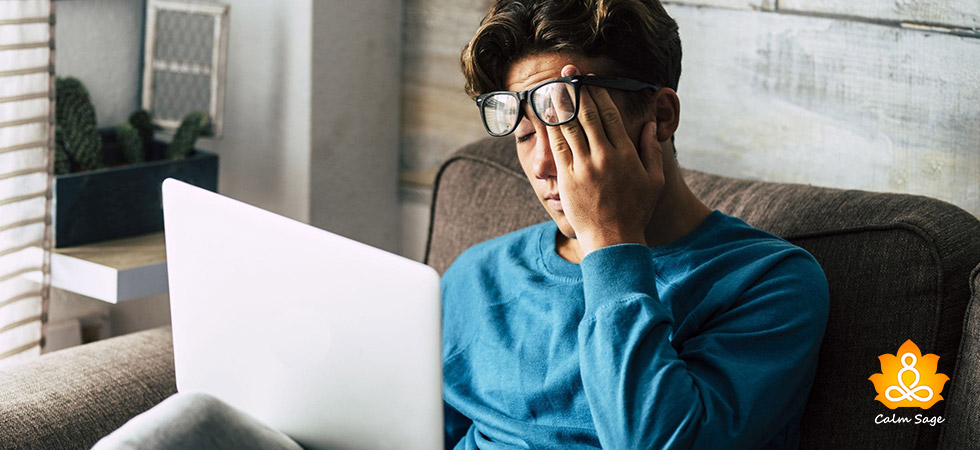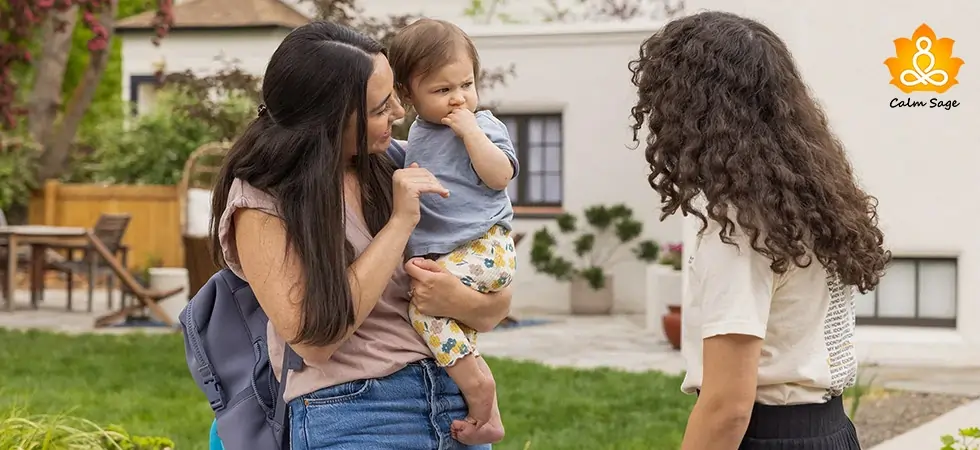Separation Anxiety In Babies: What Is It & How To Handle?
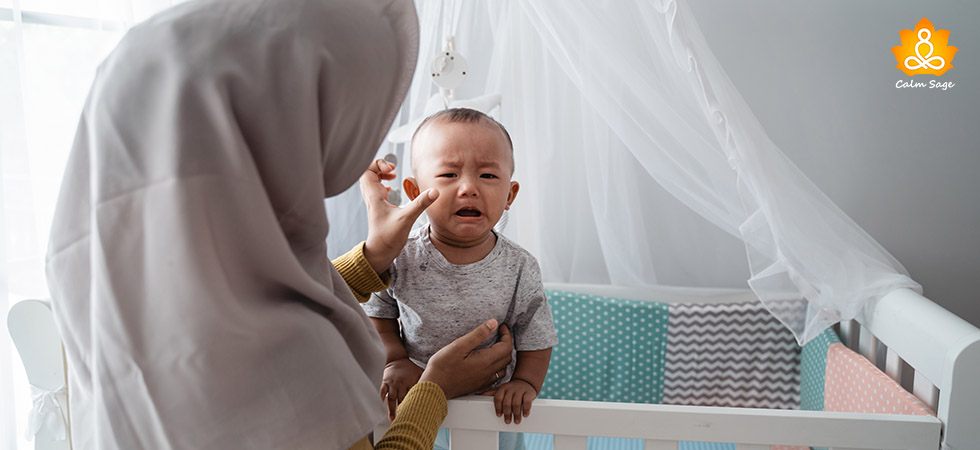
Separation anxiety is a common concern faced by many parents. When babies enter their developmental stage, they are most likely to cling to their caregivers. This is because they are exploring everything around them and not everything, they discover is pleasant for them.
Therefore, they feel vulnerable during that stage. It is very natural for babies to want their caregivers close to them while they satisfy their curiosities. Now, at that time when the caregiver has to part with the baby for perhaps work, to run errands, or anything else it makes the baby anxious.
They don’t understand how adults function therefore it is nothing but only logical to demand to have their caregivers by their side all the time. And when that doesn’t happen babies begin to fear separation, resulting in separation anxiety.
Let’s understand separation anxiety in babies in detail…
What Is Separation Anxiety In Babies?
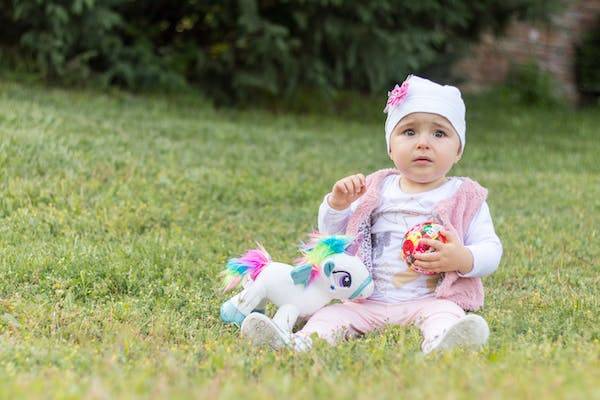
Before we understand separation anxiety in babies, let’s take a quick look at what separation anxiety is. Separation anxiety is a feeling of unrest and panic one feels when their confidant is separated from them.
The anxiety that makes way when you are separated from someone (for any reason). There can be a lot of reasons behind developing separation anxiety. Now in babies, separation anxiety generally begins in the developmental stage. However, you can see signs of separation anxiety in babies as early as 4 months of age.
Separation anxiety in babies is a mix of worried and nervous feelings when their caregiver is not close to them. It often looks like uncontrollable crying, throwing tantrums or simply being too difficult for anyone else to handle.
Also read: Attachment Anxiety: Symptoms, Treatment, Coping Skills, And More
Separation anxiety in babies is more difficult to handle because making them understand how things function needs a lot more work than with adults. But that doesn’t mean you won’t leave your child alone ever; you need to make them feel safe and learn to trust you. This will help you deal with their separation anxiety better.
But how can one know their babies are experiencing separation anxiety? or just throwing a tantrum? Let’s find out…
Signs Of Separation Anxiety In Babies
Separation anxiety in babies is common, there is a high chance you must have noticed these signs in many babies. Children often cling to their parents but when there is separation anxiety, they are super clingy and do not prefer to be pulled away from their parents even for a second.
Here are a few other signs of separation anxiety in babies that you need to watch out for;
- Begin crying uncontrollably when handed over to someone else
- Always stretch their arms towards their parents/caregivers when not in their lap
- Refuse to sleep without having their caregivers need them
- Wake up crying in the middle of the night several times
- Demand to be in contact with their caregivers almost all the time
What Can Cause Separation Anxiety In Babies?
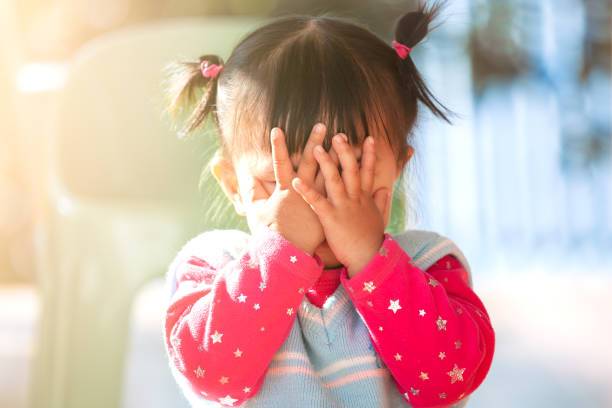
Many parents wonder what they can do to stop their babies from howling in the ear and don’t leave them alone even to use the bathroom. In a way, it is actually a good thing because it shows that you share a strong bond with them and that they are strongly attached to you. However, it is important to make them feel safe even when you’re not around.
Now, babies do not really have much exposure, therefore, making them feel safe with new people and at new places is important. When you don’t do that, there are chances kids may develop separation anxiety.
Babies can develop separation anxiety when you leave them alone for a long period of time, unannounced. Babies might not understand but you should also tell them when you are leaving and when you’ll return. For infants you need to be around them because they can’t tell time, even if it is a bathroom break, they can get easily anxious.
Also read: Does My Child Have Anxiety? | Anxiety Disorders In Children, Symptoms & How To Help
How To Deal With Separation Anxiety In Babies?
Raising a child is a difficult job. Nothing comes easy especially when they and separation anxiety. Your baby feels the way you make them feel, unintentionally but sometimes we are the reason for their troubles. However, there are a few strategies you can try to manage separation anxiety in babies.
Let’s have a look at them;
- Begin early, and practice separation: you cannot always be with your baby, therefore, prepare them in advance so that they don’t feel anxious. Leave your baby with your trusted friends or family for a little while from time to time so that they know that you’ll leave and most definitely return to them after a while
- Do not leave abruptly: always remember to let your child warm up to the fact that you’ll be going away for a while. Maybe call the caregiver 20 to 30 minutes before, help them engage with them a little, and then leave.
- Never leave your child hungry: it may sound silly but hunger does worsen separation anxiety. Therefore, always remember to feed your baby before you are about to leave.
- Tell them before you leave but keep it short: having a prolonged goodbye session can trigger anxiety, therefore keep it short but never skip it. Always remember to tell them before you leave.
- Keep a distraction ready: babies can be easily distracted and fortunately, they roll really well with distractions like toys, books, a walk in the park, etc. If your baby finds it difficult to adjust when you’re away, make arrangements for them to indulge in things they enjoy.
That’s All Folks!
I hope you found this blog about separation anxiety in babies helpful, informative, and interesting. Do share this blog with your friends and family, especially those who have little babies. Dealing with separation anxiety can be tough for babies but if you are patient, you can help them handle separation anxiety.
Thanks for reading.
Take care and stay safe.






